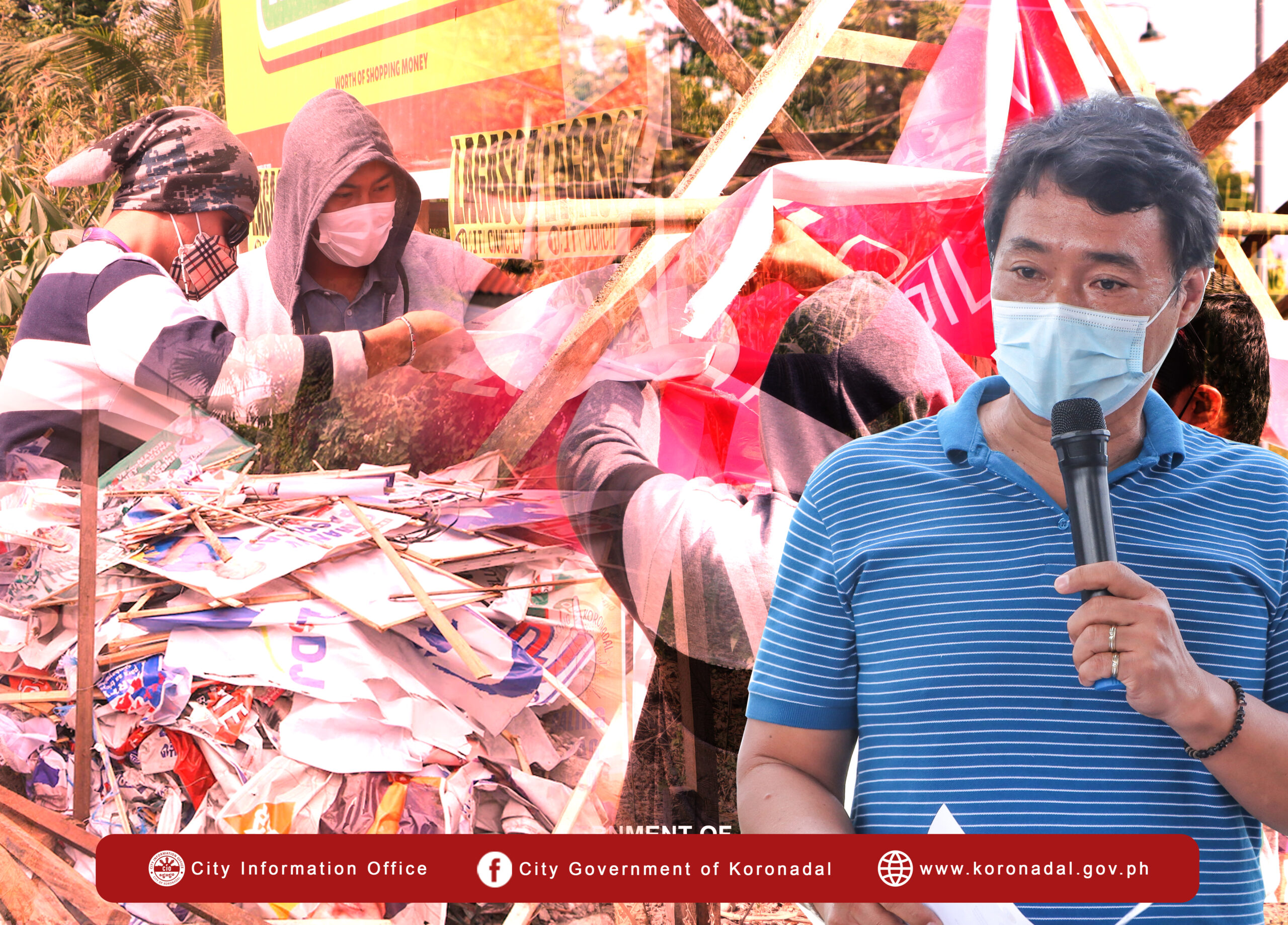CENRO RAISES ALARM OVER EXCESSIVE USE OF PLASTICS DURING ELECTION SEASON

With the on-going local election campaign in relation to the upcoming May 9, 2022 Elections, all sorts of campaign materials have also mushroomed all over the City of Koronadal. Candidates’ posters and banners, mostly made of plastics like tarpaulins, can now be seen in common poster areas as well as private properties throughout the city.
During a candidates briefing spearheaded by the Commission on Elections, City Environment and Natural Resources Officer (CENRO) Augustus L. Bretaña expressed concern over the heavy use of campaign materials especially those made of polyvinyl chloride or PVC and colored tarpaulins.
Undeniably, almost all of the candidates invest in non-biodegradable campaign materials due to their strength and durability.
The CENRO head stressed that the increase in number of campaign materials this election season is quite alarming. According to him, the volume of plastic wastes after the election is estimated to double or even triple as compared to the usual garbage collection in the city.
“We are expecting an increase of 30-40% of non-biodegradable waste after the election. The city’s Sanitary Landfill (SLF) is almost full while the SLF’s second cell is still halfway to be operational”, Bretaña stressed.
According to CENRO Bretaña, the reason for the excessive use of non-biodegradable materials during election season is that there is still no law prohibiting the use of plastics for candidate election paraphernalia.
Meanwhile, the wastes generated during election period are identified to have adverse impact on human health and the environment. The materials which are made of polyvinyl chloride or PVC contain toxic chemical additives such as cadmium.
“Campaign materials like the colored-printed plastics and tarpaulins showed cadmium content which is very toxic”, Bretaña revealed.
Cadmium, used as a plastic colorant or stabilizer, is listed as among toxic chemicals which are present in the colored plastic and tarpaulin posters and banners used during campaigns. Based on studies, exposure to such chemical may lead to birth defects and learning disabilities.
On the other hand, campaign materials posted in areas not designated as common posting areas is a recurring problem during election. CENRO Head called out politicians and supporters to avoid hanging especially nailing campaign materials on tree trunks.
Under COMELEC Resolution No. 10730 dated November 17, 2021, “Any trees, plants, shrubs in any public grounds” should not be designated as common poster areas.
Aside from hanging up posters and tarpaulins on trees, the City ENRO also appealed to politicians to avoid the use of balloons, plastic confetti and firecrackers during their campaign sorties as most of these will no longer be recovered and will likely end up polluting our environment.
With this alarming condition, Bretaña encouraged parties and candidates to limit the use of non-biodegradable campaign materials and maximize instead the use of social media platforms during campaigns. He also urged them to use recyclable and environment-friendly materials for their sample ballots, leaflets and food packages during campaign period and Election Day.
“Tani ma-limit ang cartoons kag plastic fastfood containers para sa mga watchers. Di ba uso naman subong ang “pastil?” Bretaña said.
“Pastil”, is a Filipino popular rice dish made with steamed rice topped with dry shredded beef, chicken or fish wrapped in banana leaves.
Finally, Bretaña appealed to all candidates to deal with their waste responsibly. He even challenged them to present a “Solid Waste Management Plan” or any proposal as a way of managing their non-recyclable wastes. Bretaña believes that, win or lose, they should be held accountable for their waste, particularly in the immediate aftermath of the election.